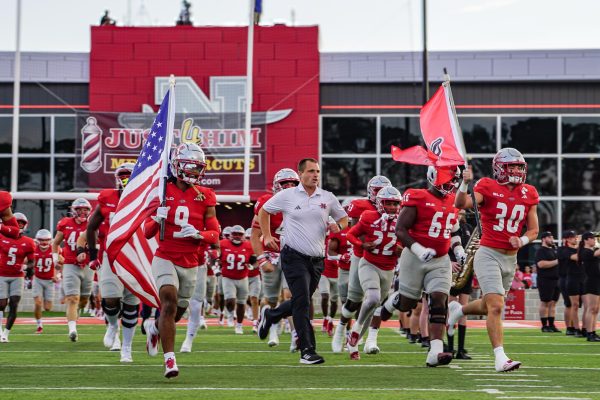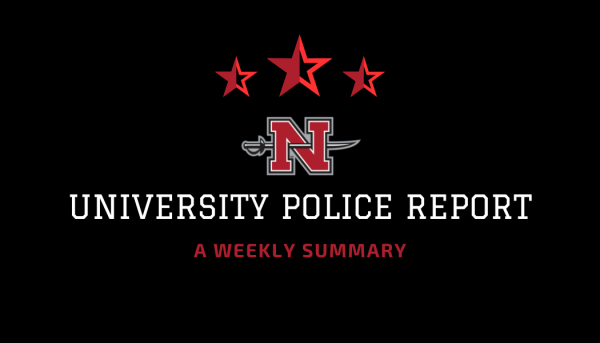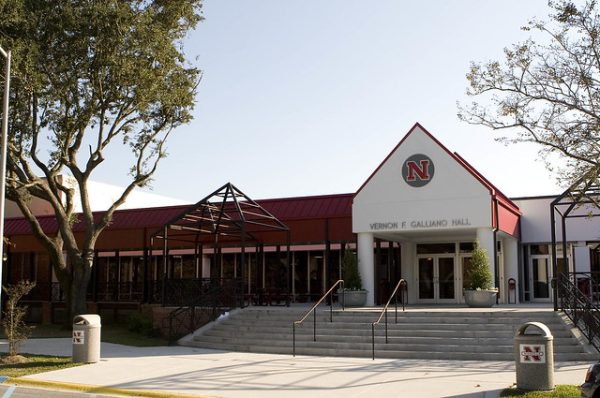Regional Accreditation Team visits Nicholls
Nicholls State University welcomed a team from the Southern Association of Colleges and Schools Commission on Colleges who are visiting the campus this week.
SACSCOC, the regional accrediting body for Nicholls and the entire southern region, checks in with the University every ten years to ensure its compliance with the national accreditation standards and to evaluate the University’s Quality Enhancement Plan.
Lynn Gillette, provost and vice president for academic affairs, visited several institutions while serving on SACS teams in the past. He said the goal of their visit is to make sure everything the team finds is consistent with what was in the documentation the University was required to send ahead of time.
“They have read everything that we’ve prepared,” Gillette said. “In effect, they will come here and then meet with us to see that what we wrote is the reality of what we’re doing.”
The team will be interviewing faculty and staff, asking questions about the standards and the University’s compliance with them.
According to Gillette, the goal of the QEP is to maximize student-learning experiences at Nicholls.
“There are a whole lot of things that you can do within the classroom, but also a whole lot of learning that occurs outside the classroom,” Gillette said. “Whether that’s in an internship, study abroad, undergraduate research, a sorority, a fraternity, football or softball. What we want to do in advising is to help our students sort of develop a road map of what they’re going to do during their years at Nicholls to get the most out of the experience.”
Students may have seen signs advertising the QEP around campus. Gillette said the goal is to more completely inform the University about the QEP and also to help the team see that the University is informed on it.
Art professor and QEP chairperson Ross Janke and several art students helped create the posters advertising SAM. They feature black and white photographs of different technology that was the best practice at that time, but would be outdated today.
“If you’ve seen some of the posters, it’s sort of looking at old ways we used to do things and then what’s the new way,” Gillette said. “The old way of advising, I’m not saying that’s what we do here, but the old way of advising is basically to view it, the advisor will help students select their courses and that’s it. It’s almost like a bookkeeper. The new way of advising is where the advisor is much more of a coach, like your academic coach that is helping mentor you through your experience at Nicholls State University.”
Janke explained that the QEP Nicholls submitted earlier this year and the approval of the plan will be based upon the team’s visit. This year’s QEP focuses on student advising and mentoring. The last QEP established the advising center and University 101 classes freshmen still participate in.
“The SACSCOC requires every institution do a Quality Enhancement Plan,” Janke said. “This is a new plan, it doesn’t exist until they approve it. Over the next five years, this plan will become part of the culture of the University.”
The entire plan is available for students to view at Nicholls.edu/SAM. SAM focuses on helping students maximize their learning and development during their college experience with the basic concept of “Advising is Teaching.”
SAM will focus especially on improving the advising process for sophomore students according to Gillette.
“Students are being advised in University College and then in their sophomore year they go into another college to their major,” Gillette said. “We want to improve that transition. We want to improve the quality of advising focusing on that sophomore year, but it will carry over to the rest.”
SAM will help students by implementing a training program for advisors, as well as creating an advising syllabus, which each advisor will be able to tailor to their own department or program.
The sample advising syllabus in the QEP outlines exactly what will be expected of students and advisors. Some ways it lists for students to prepare for an advising session include being proactive about their college career, thinking about the big picture and being honest about their difficulties. It also includes a list student services like the Writing Center, Counseling Center and Health Services, just to name a few.






